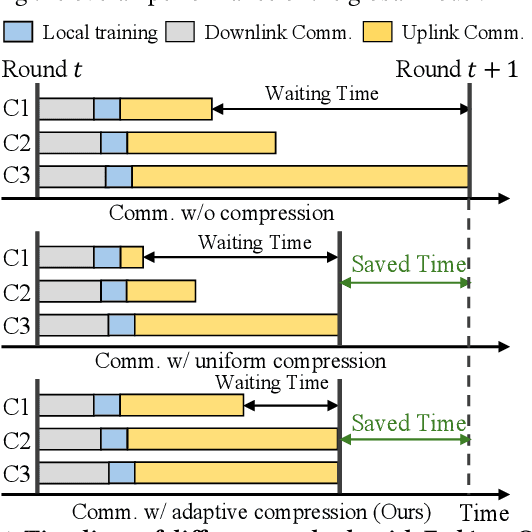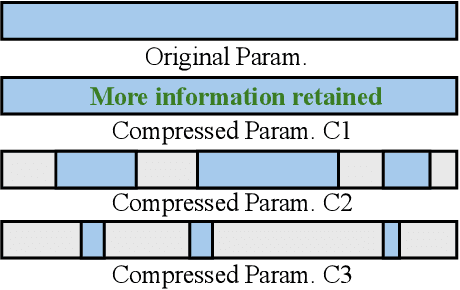Rudan Yan
Bandwidth-Aware and Overlap-Weighted Compression for Communication-Efficient Federated Learning
Aug 27, 2024



Abstract:Current data compression methods, such as sparsification in Federated Averaging (FedAvg), effectively enhance the communication efficiency of Federated Learning (FL). However, these methods encounter challenges such as the straggler problem and diminished model performance due to heterogeneous bandwidth and non-IID (Independently and Identically Distributed) data. To address these issues, we introduce a bandwidth-aware compression framework for FL, aimed at improving communication efficiency while mitigating the problems associated with non-IID data. First, our strategy dynamically adjusts compression ratios according to bandwidth, enabling clients to upload their models at a close pace, thus exploiting the otherwise wasted time to transmit more data. Second, we identify the non-overlapped pattern of retained parameters after compression, which results in diminished client update signals due to uniformly averaged weights. Based on this finding, we propose a parameter mask to adjust the client-averaging coefficients at the parameter level, thereby more closely approximating the original updates, and improving the training convergence under heterogeneous environments. Our evaluations reveal that our method significantly boosts model accuracy, with a maximum improvement of 13% over the uncompressed FedAvg. Moreover, it achieves a $3.37\times$ speedup in reaching the target accuracy compared to FedAvg with a Top-K compressor, demonstrating its effectiveness in accelerating convergence with compression. The integration of common compression techniques into our framework further establishes its potential as a versatile foundation for future cross-device, communication-efficient FL research, addressing critical challenges in FL and advancing the field of distributed machine learning.
 Add to Chrome
Add to Chrome Add to Firefox
Add to Firefox Add to Edge
Add to Edge